Episode 6
The Power of Pride
S03 - Episode 6
June 14, 2025
42 mins & 25 secs
Speakers
Chris McLaughlin
Soren Peterson
BJ Garceau
Betsy Lundy
About
In this vibrant and heartfelt episode, Chris and Soren sit down with Bangor Pride organizers and community advocates BJ Garceau and Betsy Lundy. Together, they explore the deeper meaning behind Pride celebrations—why they matter, how they foster connection and visibility, and what it really takes to bring a community-wide event like this to life. From advocacy to allyship, this conversation is a celebration of authenticity, resilience, and the power of showing up. #InspiredInsights #BangorPride #CommunityMatters #LGBTQSupport
Tune in and be inspired to show up, speak out, and stay grounded.
https://www.youtube.com/@InspiredInsightsPodcast
inspiredinsights@inspiredcg.com
*Please note that this episode contains sensitive behavioral health topics such as suicide and substance use. If you are experiencing a behavioral health crisis, please contact the 988 Suicide & Crisis Lifeline by calling 988 or visiting www.988lifeline.org.
**This podcast is for information and entertainment purposes only and should not be considered health advice. This podcast is not intended to replace professional medical advice.
Transcript
The Inspired Insights podcast is for informational and entertainment purposes only and should not be considered health advice. This podcast is not intended to replace professional medical advice.
Please note that this podcast may contain discussions on sensitive topics such as mental illness, suicide and substance use. If you are experiencing a behavior health crisis or need support, please contact the 988-SUICIDE-AND-CRISIS-LIFELINE by calling 988 or visiting www.988-LIFELINE.ORG.
Soren:
Welcome back, folks.
Chris:
Hi.
BJ:
Hey, everyone.
Soren:
Yeah, another episode of the Inspired Insights podcast.
Chris:
Pride edition.
Soren:
Indeed. Indeed.
Chris:
Happy Pride, everyone.
BJ:
Happy Pride. Also, happy International Women’s Day.
Chris:
Yeah, yeah, yeah.
BJ:
Yeah, that is today. I found that out.
Chris:
Yeah.
BJ:
They all went to jiu-jitsu class this morning.
So, happy International Women’s Day.
Chris:
You are a fascinating person.
All right, we’ll get there. We’ll get there.
Soren:
Okay, so we have two lovely guests. Would you guys like to introduce yourselves?
Bethy:
Absolutely. I’m Bethy Lundy. I’m the Executive Director of the Downtown Vanguard Partnership.
Chris:
Yay.
BJ:
And I’m Bobbi Jean Garso or BJ as most people know me. I work locally in a hospital here full time. I am the Board of Directors for a lot of people in diabetes communities.
And I’m also on the board for Bangor Pride, which is going to be the best one yet this year.
Chris:
And I can’t wait to talk about it. I can’t wait to talk about it. Well, thank you both for being here.
This is such an important topic, especially now. So I really just thank you for being here and being willing to, yeah, just being willing to talk.
BJ:
We love you guys. We love the podcast. And I love the fact that you bring light to subjects that, whether I’m working professionally or in small business, that are subjects that can be real touchy right now.
So thank you for bringing light to our community here in Bangor and having us.
Chris:
Sorin has yet to believe that people actually are listening to the podcast and that it’s making a difference.
BJ:
It is. It makes a difference. Even if one person hears it, it makes a difference.
So we have to remember that. I guarantee you there’s another one. Yeah.
Soren:
Seven. I think we’re on eight now.
Chris:
Eight. Maybe it got eight. Yeah, well, thank you both.
I’m excited to have this conversation. So one of the reasons why Sorin and I wanted to have you both here is A, to just talk about the importance of resilience and allyship and pride. And there are some changes with Pride this year.
And so it’s also a good opportunity to let some of our local listeners know that there’s some big stuff going. Pride is still happening bigger than ever before. Do you want to talk a little bit about sort of the role that Downtown Bangor is going to play with this year?
Bethy:
Sure. Yeah. I was telling Sorin before we got started that Downtown Bangor has always been, well, it’s obviously the home of Pride, right?
That’s like most of the Pride activities. Obviously, the festival parade happened in downtown. You know, there’s some really important, both positive and tragic events related to the LGBTQ plus community in Bangor that have kind of, I think, solidified Downtown Bangor as like a core place for Pride.
Chris:
And you’re talking about Charlie Howard’s death. And Sorin and I actually did a visit to the memorial downtown and did some photos there before. So, yeah, Charlie Howard is an absolute, just a tragic story.
That, unfortunately, is a sort of stain on Bangor’s history around LGBTQ acceptance. Yeah.
Bethy:
Yeah, absolutely. And I think in some ways, like the fact that, you know, the festival and the parade and the rainbow walkways there, you know, those are all things I think that kind of maybe were born out of that to a certain extent. You know, I do think that at that moment in time, it was much more OK, you know, to be anti-gay.
And I think when people saw what that can translate into, it really helped the community start to rally around and create that sense of allyship in a way that has grown over time. Right. I don’t think that like everybody was overnight like, OK, now I’m a supporter, you know, but I think it opened doors and conversations.
I know when I talked to my parents about it, you know, like, you know, it certainly impacted them considerably and changed the way that they thought about it.
Chris:
Yeah.
Bethy:
Just watching their mental evolution over time is really impactful.
Chris:
Yeah. I mean, as somebody who grew up locally to this area, 84, like that stands out in my mind. Like that was a thing.
And I just remember the punchlines and the jokes.
BJ:
I watched it actually in my English class when my English teacher was worried enough. It was Old Town, which I know that north of Orono, Orono is very liberal. You may love them over there.
But in Old Town, we watched the video on it. And it was just amusing to me because I know there’s people still living in that community that actually almost praised this crime. Like this person for just existing.
And on the side note of it, me as someone who didn’t even dare to come out of the closet while I was in high school, even though everyone knew my best friend was my girlfriend. And she was amazing. But it was one of those things, I just remember watching the video and hearing the comments, which made me just want to like shrivel up and things like that.
But now it’s like, I know that unfortunate event of how, and pun intended, how proud we would be of where we are as a community, showing that we’re not going to back down. That we’re not going to hide away and we’re not going to be scared. We’re going to kill them with kindness and show them that we’re not doing anything wrong.
We just want to celebrate love and acceptance.
Chris:
And as an also an Old Town grad, I don’t know if you knew that.
BJ:
Well, I mean, it’s interesting.
Chris:
Yeah, like being in, I think, probably middle school at that time. But yeah, it was. Yeah.
Yeah. 10. Yeah, I was 10.
Bethy:
But yeah, like circling back to the original conversation there about like, you know, like downtown. I mean, it’s like, it’s just steeped in the culture here. You know, downtown that there’s this conversation, you know, about it.
And so the downtown Bangalore partnership, which has been around since 1988, has always been a supporter of pride in various ways. Like a lot of that has come like, you know, marketing support and promotion or helping execute events or providing information connection, that sort of thing. And last year, Orion and Ethan were organizing pride and they, when they met with us, they said, you know, we were kind of put on notice that HEAL is not going to have the capacity to do pride next year and kind of need like a parent organization to help us with kind of the infrastructure pieces and like downtown Bangalore.
I was like, yeah, absolutely. And they were like, okay, cool. We’ll like reconvene after pride is over, like talk about it.
And of course, they moved away. And so I was just kind of like, okay, like, I don’t really know where to go with this. Because, again, like a major philosophy of the downtown Bangalore partnership is that you don’t want to co-opt events that really belong to other communities and like take them on and be like, we’re going to do them for you, you know, because we really feel like it has to come from there.
So, you know, we kind of kicked it around a little bit at the committee level and at the board level. And then I reached out to Josh to let HEAL and said, hey, just, you know, this is where the conversation was left with Ethan. And he was like, oh, my God, that would be so helpful.
Like, I really would love for you guys to do that. We just literally cannot do it again this year. And I was like, cool, fine, whatever, like literally the next day, like the pride committee was like, and we’re doing pride on our own.
And I was like, all right, cool. Yeah. Yeah.
And so then, you know, we started, you know, conversations with the two Sam’s, like they were the first ones. Yeah, they’re great. They are.
They’re really wonderful. And, you know, we’re just kind of like, okay, like, what is it exactly that you need?
Chris:
What do you need?
Bethy:
Yeah. And like, for them, it was like, okay, we know what we want it to be. But we need, you know, a nonprofit that can handle the financial aspect of it, right, the money in the money out piece of things that can get, you know, insurance that can, you know, kind of talk us through the really the less fun side of it.
You know, when I was, when I first joined the Downtown Magnet Partnership, I was a board member. And I was like, oh, events are so fun. But then when you realize that it’s also like less, you’re like, oh, insurance and like, behind the scenes, so much work to bring these events to life.
Chris:
Yeah, 100%. And that it was my inspired insight for our week for this episode, is that folks have no idea what it takes, whether it’s a day long event, a four hour meeting, or a multi day conference, the amount of just energy and resources and details that go into making this stuff, the thing that it is. And my inspired insight is, make sure you thank an organizer, make sure you’re just taking two seconds to say that parade was awesome.
Thank you for putting that on.
Bethy:
Yeah, I think that’s so key because it is really easy to forget that the majority of the people who are doing the work of volunteers. Right, right.
BJ:
And we work full time jobs. I mean, I actually I work a lot of jobs. And you’re a confidant finder.
Yeah. Right, right. Yeah.
Chris:
Right.
BJ:
Yeah and it’s one of these things though and we have to realize that like everything from the security of the concerts likeor the background the soundcheck people or things like that and it’s one of those things like we need to realize that there’s a lot of work put in here and outside of we’re taking time away from our family lives we’re taking time away from this because we want to put on events in the best way we can but people tend to forget like even me we’re trying
to organize a 5k i call it the wicked gay 5k to wear short shorts so i’m hoping we can hook up with happy endings because melissa’s really good with um with planning that and with too much but anyway point being is but then finding out we need insurance city permits you can’t just like show up and go running around in traffic because and and these things and i was like talking to bangor parks and rec who have been fantastic and i was just like insurance to go running yeah so thank you for bringing that up like even myself working in these other fields like thank you for working with us
Bethy:
Yeah, no, I mean, that’s, I mean, that’s the, it takes a lot of like, really unfun, so on stuff. So let’s make a funny. Special kind of person to want to take on that workload right like in, and I will say to just organizations across the board are kind of like volunteer basis like shrinking so you have like less and less people, you know, lifting more and more, you know, stuff, you know, and you always want to make things, your thing bigger than it was last year but if you don’t have kind of a community support, like I know for pride the biggest thing is going to be volunteers on the parade. Like, yeah, it’s like you need so many people to make sure that you know the vehicles are spaced evenly you know quickly and that you know nobody’s running on to the road like there’s just like so lift is so hard on a parade.
Chris:
That’s right.
Bethy:
You know, I think about that all the time with a festival of lights parade and Fourth of July parade to like there are just so many people who give up their time to come out there so that like other folks can stand on the sidelines and be like, yeah, you know
Chris:
I think there’s an assumption that public safety, like our friends in the police force, they’re, they’re doing that. And they can’t, so that, yeah, yeah. We’ll come back to some of the soren inspired insight for the episode.
Soren:
Um, my inspired insight is kind of off topic but it does have to do with pride and our identity as a community. Um, so, as I’ve journeyed through my like exploration of my identity. Um, I have found that I have decreased my reliance on labels significantly.
Like, in, in my youth, as I was like exploring my gender identity and exploring what my sexual orientation was. I didn’t really need to explore that much. But, um, um, I relied on labels so heavily to identify myself and feel like my experience was valid.
But as I’ve become increasingly comfortable with my identity, my identity and how I present and how I interact with the world regarding matters of sexual orientation and gender. I have sort of withdrawn from the labels that I previously used, and I’ve stopped talking about it as like a concrete formalized thing. Um, and I think that that has allowed me to identify with the community, rather than myself as an individual within it.
And I think that is increasingly important as queer individuals are persecuted as individuals that we stand united as a front. And part of breaking down some of those barriers can be, I think, putting less emphasis on the importance of labels.
Chris:
Yeah. Do you think that’s a generational piece because I know you and I have talked about this a lot that folks your age are really embracing.
Soren:
I’m 17.
BJ:
Yeah. No.
Chris:
Why, thank you. No, folks your age seem to be really embracing that non-binary piece around both sexual orientation and gender. Where my generation, like, we needed the word, we needed the label.
Maybe there was some safety in calling it something. And folks your age don’t seem to need that.
Soren:
I think, honestly, for me at least, labels were like a matter of validity and asserting myself as a thing that is existing in a concrete, yeah, as a badge. It’s a way to show others that I exist as a part of a group that actually is real.
Chris:
Right.
Soren:
Like my experience is valid.
Chris:
Right.
Soren:
But now I think queer individuals, at least in certain circles, obviously it’s becoming increasingly difficult for queer individuals to exist.
Chris:
Yeah.
Soren:
But in certain circles, it just is. It’s not something that needs to be announced or defined. It is simply a part of the social milieu.
Chris:
Yeah.
Soren:
Right.
Bethy:
Why do you even think the word queer?
Chris:
I was just going to say that.
Bethy:
It is used so much because it has that amorphous quality.
Chris:
Yeah, yeah.
Bethy:
But when we were growing up.
Chris:
Nope.
Bethy:
You know?
Chris:
No.
BJ:
Well, I had two older brothers, and again, growing up in the backwoods of Greenbush.
Chris:
Yeah.
BJ:
They threw around the F word.
Chris:
All the time, yeah.
BJ:
I don’t even want to say it out loud.
Chris:
Right.
BJ:
But I remember having MTV on, and they’d be like, even though my brother was a Magic Johnson fan who had HIV, however, someone in our community had it, they got it, they deserved it. That’s right. But Magic Johnson was having sex with all these women.
Chris:
Right.
BJ:
And a basketball player was cool.
Chris:
Yeah.
BJ:
And they would look at gay people on TV and be like.
Chris:
Yeah.
BJ:
Yeah. Yeah. And that was the household I grew up in.
It’s just one of those things that you couldn’t dare to say.
Chris:
Yeah.
BJ:
Say certain words. And I remember even now, admitting, I felt with badges, you either had to be gay or that, and I’m bisexual. My wife is bisexual.
Chris:
Yeah.
BJ:
And it’s one of those things that is taking me years because of the stigma we had growing up, because people would be like, you can’t be both, and things like that. But now, and thanks to your generation.
Soren:
Yeah. Yeah.
BJ:
For helping us get rid of those labels. I’m very comfortable admitting that I’m attracted to both sexes.
Chris:
Yeah.
BJ:
I just fell in love with a woman I want to spend the rest of my life with.
Chris:
Yeah.
BJ:
And thank you for your generation for allowing us to get rid of such. Bridges and boundaries.
Chris:
Yeah. Yeah. Well, we’ve talked about this all the time.
It’s probably been, well, actually, probably in my relationship with you that I spent more time thinking about the word queer and finding an enhanced amount of comfort because of the connotations when we were younger. Yeah. I think those labels can divide us more than unite us sometimes.
Absolutely. Especially with what’s going on with trans and non-binary folks. So, this idea of queer being everything else, I kind of dig that.
Soren:
Yeah. Yeah, me too. Me too.
And I think human behavior and experience is so diverse.
Chris:
Yeah.
Soren:
That by attempting to fit a set group of labels onto it, you are sort of minimizing those experiences.
Chris:
Yeah.
Soren:
And limiting individuals to a set of behavioral patterns.
Chris:
Right? Well, remember, as the clinical social worker, you and I have also talked about those labels of depression, anxiety, bipolar.
BJ:
Or even diabetic.
Chris:
Or in the medical world, right?
BJ:
You have these labels that follow you around.
Chris:
There’s something a little too pathological and a little too, that diagnostic piece of these labels. And we all know that there were times not that long ago where homosexuality was a mental health diagnosis.
BJ:
ESM.
Chris:
Gender identity disorder. Yeah. And these pieces were meant to divide this pathological view of our identities.
So, all the more reason that I’ve been, even as a clinician, gravitating more towards queer, non-binary, and not labeling it.
Soren:
Yeah. And I think, too, part of queerness is deconstructing social norms. Right.
So, we are actively attempting to sort of abstract reality.
Chris:
Right.
Soren:
And pull people away from concrete ideas around gender and concrete ideas around sexual orientation. And when we then replace those concrete ideas with separate concrete ideas, ultimately, we’re making progress, but not really.
Chris:
Yeah.
Soren:
Right?
Chris:
Well, we’re replacing one just to create another.
Soren:
Yeah. Precisely. Yeah.
Chris:
Inspired insights for the two of you.
Soren:
Yes.
Bethy:
I don’t want to, like, change mine after this conversation already. Can I switch it up?
Chris:
Of course. Yeah.
Bethy:
Okay. So, I was going to do something completely different. But, just all this talking about, like, pride and identity and things like that, it has me thinking about this thing with my kids where.
Your mom? Yeah. Oh, wow.
I’ve got three birth babies and three step kids. Yeah. It’s a kind of wild and crazy modern thing.
Chris:
Yeah.
Bethy:
But, yeah. So, all the time, like, they are always talking about, or maybe not always talking about, but they, like, have these accomplishments that they do, right? And, like, I always want to say I’m proud of you, but I’m actually really trying to shy away from that and be like, you must be so proud of yourself.
Chris:
Yeah.
Bethy:
And really, like, foster that sense of, like, pride.
Chris:
Internalizing. Internalizing.
Bethy:
And I do think it relates to pride, as in, like, you know, like, the Pride Festival and stuff like that. And, like, it being an opportunity that’s, because sometimes I do think that people think it’s about being showy to others rather than showing yourself, right? And it’s really, I think, that’s what it is about.
Because, you know, you have a booth there. Have you ever worked a booth there before or anything? Like, at the Pride Festival?
BJ:
I have. I have social.
Bethy:
I have a music festival. They’re, like, static. And all the folks are just kind of by you all day long.
And, like, everybody is just, like, letting every flag fly. There are no two people the same. Like, whatever your jam is, like, you’ve got it on full display, right?
And it isn’t about, like, gathering something from somebody else so much as it is, like, the day where you come out and show the world who you are.
Soren:
That’s right.
Bethy:
Like, absolutely.
Soren:
Yeah. I love that. I think I and me and Chris both have talked a lot about in previous episodes this idea of deriving, like, social gratification, not externally but internally.
And I think Pride is beautiful not because it is a display of queer identities to people outside of the queer community, but rather because it is an opportunity for queer individuals to show themselves to themselves, right? Yes. Like, really exist as an individual and just let it all loose, right?
Which is what you were pointing out.
Bethy:
Test the boundaries.
Soren:
Yeah, totally.
Bethy:
Like, how far am I into this or that or whatever? Like, really putting it all out there.
Chris:
Yeah. Yeah. Every June I talk with a young person, inevitably, who it’s their first Pride, and even just wearing that t-shirt or those colors or the flag around it, you see they’re standing a little bit taller.
Their shoulders are a little bit more relaxed. Like, for many of the young people in our community, it’s the first time, and it’s the first time they’ve seen others. So that representation piece, community.
We spend a lot of time talking about community. Yeah.
Bethy:
That’s the one downside of us not having a gay bar anymore.
Chris:
I know.
Bethy:
It was kind of cool at first because it’s like, you know, like, everybody’s all hanging out together. But then you also lose this sense of like, you walk in and you have an idea that everybody’s on the same page.
Chris:
Yeah, well, I always wonder the folks that are saying that, like, we don’t need a gay bar because they’re not gay, they’re not queer, right? So why don’t you ask the queer folks in your community what we would like, and whether it’s a bar, a bookstore, a coffee shop. I absolutely miss having a space that is ours, right?
BJ:
I feel, however, though, obviously politics have changed. And as you were stating, that our communities kind of were shying away more because of certain things and all the things online about transgender and especially what’s going on in the state of Maine. I remember working at alternative bars, and then I felt like we accepted it so much we didn’t need those bars anymore.
Like, I wasn’t as, I felt proud to hold my wife’s hand anyway. And I just felt like we needed people that we kind of shied away from it because I felt like we were more accepting. Like, five, six years ago, where we felt like we didn’t need, but now we need those spaces because of where we’re taking such a shift.
Bethy:
Where I thought you were going to go with that, like, you know, like, when you’re saying, like, we don’t need it, I was thinking, like, I thought you were going to say because you were married. But like, no, like, we need it more because you are a single gay person.
Chris:
Yeah.
Bethy:
Like, you know, like, and you are in, like, any, like, bar or restaurant or whatever. Like, it might be hard for you to identify, like.
Chris:
Yeah. Yeah.
Bethy:
I was going to comment. I’m so old. Yeah.
Chris:
Let me just talk to this, though. I don’t feel like we need more queer spaces in town because of acceptance from straight folks. We need more queer spaces in town for other queer folks.
Like, 100% and be out and seen and modeling that we are living our lives just like all the other straight places around us.
BJ:
Well, my wife and I actually had a conversation today in the car. And I don’t know if I can count this as my insight, but it was just how basic we are and how our marriage is not threatening to anybody. Like, literally, we are the couple that sits on the couch and we keep, I’m like, babe, did you just let the dog out?
It’s like 20 degrees out. I have to let the dog out. Like, we’re not.
Chris:
Welcome to our nightly conversation.
BJ:
Yeah. Like, you know, like, we’re not having wild sex parties.
Chris:
Yeah.
BJ:
We’re paying taxes. We’re working hard. Like, we were driving to an ice skating event, and we were just that basic married couple.
Like, if we were not a woman and a woman, people would not even bat an eye at us. They would probably actually be like, this is the ideal American couple.
Chris:
Yeah.
BJ:
Like, right here. But because we’re two women, and we both work in healthcare, we’re successful, we do a lot for our community. But we were driving in the car today, and we were just like, how are we hurting anybody?
Chris:
Right.
BJ:
We’re not. We’re not like. Yeah. Like, how is our sexual identity.
Bethy:
In some ways, like, it’s what my entire insight was going to be, which is that people need to care less about more and more about less.
BJ:
Right. Like, if you’re. That’s what we’ll share.
But then, like, and it goes to your insight, too. It’s like, you were talking about being a little racist. Because when I am with my wife, I don’t think of us as a gay couple.
I just think of us as a married couple.
Chris:
Right.
BJ:
Right. Like, she’s my emergency contact. And unfortunately, I’m hers.
Yeah.
Chris:
Yeah, yeah, yeah. Right. This idea that gay marriage is a different thing than marriage.
It’s just a marriage. Right.
BJ:
Like, come on. Like, and I get we need our labels, but like, we were just literally in the car on 202, driving to Alfon Arena.
Chris:
Yeah.
BJ:
Like, going ice skating. And we were, I was like, did you do your taxes yet? Yes.
And I was like, and then we just started making jokes about, like, the low percentage of transgender athletes.
Chris:
Right.
BJ:
And she’s like, oh, no, transgenders are going to ruin sports.
Chris:
Yeah.
BJ:
And then we just kept sarcastically punning about how, really, why are people so threatened by our community? And it just, we’re very thankful for, like, downtown Bangor, because that’s where I met my wife. And just always.
Soren:
Oh, yeah.
BJ:
She made my coffee. And it was one of those things that downtown has always been such a big staple in allowing me to be comfortable with who I am. So thank you, downtown Bangor.
And the community and the small businesses and things like that.
Chris:
Yeah.
BJ:
In my 40s. And this, I remember going to my first Pride. It changed.
Like you said, I stood a little bit taller and I stood a little bit more proud. So.
Chris:
Yeah.
BJ:
So, you know, we have to remember those things.
Chris:
One hundred percent.
BJ:
And one thing also, on top of that, I remember because I marched with, I used to work for Penobscot Community Healthcare.
Chris:
Yeah.
BJ:
A great nonprofit organization. And Lori Dwyer, the.
Chris:
President. Yeah.
BJ:
And she marched for us last year.
Chris:
Yeah.
BJ:
Like, you know, you’re great. And stuff like that. But she was just so supportive.
Like, I think I may have been the only, me and one other gay person, and then 10 other people from my community who were just there to support us.
Soren:
Yeah.
BJ:
And show their face. And I was just like, this person makes more money than I will ever see. She’s a lawyer.
She’s way more educated than my dumb green bush ass. You know? And I’m just like, and here we are shooting the shit.
Chris:
Yeah.
BJ:
We’re best friends. And she has no, she’s just like, yes, I’m here to support my community.
And I just felt so good there.
Chris:
And that’s a piece of Pride, right? It’s sort of, there’s a great equalization that happens.
Whether it’s members of the community or our allies. Yeah. Folks are folks.
Yeah. And all that other stuff just kind of gets checked at the car as you’re heading to the parade. Yeah.
Soren:
Yeah.
Chris:
You were going to ask a question
Soren:
I think. I was just, when you said earlier that you and your wife were like the ideal American couple, which is fantastic. Good for you guys.
BJ:
I mean, just what I know by stereotypes.
Soren:
Well, yeah, yeah. Obviously.
BJ:
You make money, you pay. And I guess that may change, but you put it on paper. We just have kids, we have dogs.
Soren:
I think me as sort of like a radical revolutionary child, right, is more in favor of a complete rejection of the social ideology and the nuclear family, which has resulted in persecution of queer individuals. We have so much social schema around and expectations that exist as prerequisites outside of even queer identity. And for me, I think that the social fabric that we have is extremely cumbersome.
Chris:
Yeah.
Soren:
And even if you were having crazy sex parties, are you hurting anybody? Exactly.
Bethy:
No.
Chris:
Right?
BJ:
Yeah. I’m old.
Chris:
Yeah.
BJ:
I’m older. When I’m in my 20s, it’s never a concern anymore. I’m in my 20s by the way.
Chris:
Yeah. Yeah.
Soren:
I don’t know.
I just feel like… I think part of queerness for me is a rejection of the concrete social fabric that we have around us. It is inherently a revolutionary experience as we sort of attempt to defy social norms.
Chris:
And I know that you know what I’m about to say, but just to again, go on record, that’s why they feel us. Yes.
BJ:
Because we… And that’s why I wanted to make the statement that we are very born.
Chris:
Yeah. Yeah, yeah.
BJ:
Trust me. Have fun. Do your things.
If you’re not hurting someone else or causing harm to others and doing things. And I agree with your statement about that too, but I also wanted to share my experience because people have this idea that we are doing these crazy things because we are in the same culture. At least just from the context.
Bethy:
The reality is you probably are, but straight people are too.
Chris:
Right.
BJ:
Yeah. I think they’re more about like my friends who are straight. Yeah.
You know what?
Chris:
Yeah.
BJ:
I mean, people go through crazy. I say it’s hard. For your sexuality.
Chris:
Yeah. The best way to turn society against one another is develop an other.
BJ:
Yeah.
Chris:
And today, queer folks, especially trans non-binary folks, are the other. And it’s not lost on me that the target of these attacks are young people who are rejecting the norms and the establishments that the older folks make a lot of money off of. I agree.
Soren:
And I think the underlying assumption that is like sort of the basis of conservatism as an ideology is that normal is good. Right. Like what is currently happening is inherently beneficial.
And I spend a lot of time reinforcing in my mind that no, the normal is not fantastic.
BJ:
What is the normal for you when you say that? I’m just curious.
Soren:
A patriarchal capitalistic society in which individuals are encouraged to maximize their fiscal benefit by commodifying their own labor.
Chris:
Yeah. So exactly what’s happening right now.
Right.
Soren:
Yeah.
Chris:
Big words.
Soren:
Big words.
Chris:
Sorry.
Soren:
Welcome to Soren.
Soren:
This is more of my broader critique of capitalism as an economic system.
Chris:
Yeah. Yeah.
But I think, Soren, what you’re saying, though, is that…
BJ:
That’s a great statement.
Chris:
Yeah. We are sort of… I’ll speak for myself.
My husband and I often say, this isn’t normal. We see things on TV. We read.
What’s happening today isn’t normal. No. But your point is, history is repeating itself.
This has played out. As a student of history, as you are, I think your perspective is, this is pretty normal.
Soren:
This is exactly what’s happened hundreds of times over thousands of years.
There is nothing unique about what is happening in America right now. And there is nothing unique about the persecution of minorities. Right.
It is what humans will do when they are attempting to maintain power. Right. Right.
And every human in power is trying to maintain it.
Chris:
So how to then, for your perspectives, resilience is a giant protective factor. Right.
We know that. We’ve talked about this. What does resilience look like in 2025 in the context of pride?
Why is this year’s pride so pivotal?
Bethy:
I can speak as a parent and as a former teacher on the subject of resilience. This other man and I founded this school in Boston. It was amazing.
One time we were just sitting around trying to be like, okay, what actually makes a kid successful in this world? We were like, grit.
Soren:
Yeah.
Bethy:
And grit, I think, really translates into resilience. It’s somebody who faces a challenge and instead of holding up and going away, which is in the context of pride, I think what people would hope is that as a society we’re facing a challenge right now and they’re hoping that everybody that is viewed as a threat will hold up and go away. But what you actually need is that grit or that resilience.
You need to dig in and be like, I’m still here. I’m still going to have my parade and I’m still going to wear my rainbow outfit or my fox ears or whatever your thing is.
Chris:
Or my crown.
Bethy:
Yeah, your crown.
Don’t let anybody steal the crown. That’s just it. It doesn’t even have to be like that.
Resilience isn’t necessarily actively fighting against something. It’s just pulling together in the core of who you are. It’s that internal versus external.
Chris:
I love it.
BJ:
What about for you? For me, I’m being a member of the pride community and things like that. I’m just going to piggyback what you said.
Even with my studying of martial arts, I realized that you need to kill them with kindness. There’s an old saying that it’s better to be a warrior in a garden than a gardener in war. And what that means is you need to have skills with you in a peaceful element.
The reason why we need pride is because we are a target right now. We cannot open up our daily news and see comments about the transgender community or things like that. There was literally a rally against Janet Mills.
And it’s just one of those things is we are the minority again. And we need something to show people. And we’re not doing it in a hurtful fashion.
We’re just showing them that we’re going to continue marching. We’re going to continue being proud of who we are. We’re not hurting anybody.
We’re not threatening you with anything. We’re going to make you happier. We’re going to show you what love looks like.
And things like that. And also, without being so crude, we have each other’s backs. And I feel very safe.
I know that there was an article released in the Bangla Daily a few days ago. Someone said they didn’t feel safe. Did you read that?
Yeah. It was an older gentleman, I believe, and things like that. But I just want to promise you this.
I look at the cameras. Everyone is going to be safe this year. We’re going to kill them with kindness and things like that.
And I think a lot of people, if you are worried about your safety, I know that we’re going to make sure. Yeah.
Chris:
Is pride safe to go to? Yeah. Yeah.
BJ:
Yeah. And I want to secure it. And yes, we’re going to make it the safest, most enjoyable experience we can.
And so by being resilient doesn’t mean we have to be violent or forceful. Right. It just shows that we’re not scared.
Chris:
That’s right. And I like to, you know, I always, I don’t know that we’ve ever talked about this. Maybe we have on air.
During COVID, your younger brother, who our listeners and viewers have met last season, essentially threw a pride parade for you with a drive-by car parade.
Bethy:
Yes, he did. During COVID. Yeah.
Chris:
It was really cool. And that has, I think about that a lot for a lot of reasons, but one of the reasons I think about it is that pride can be what you, like from an event perspective, pride can be what you need it to be. Right.
You can march. You can stand on the sidelines. You can sit in your car.
You can stream it. Right. It’s whatever.
BJ:
Yeah. Fundraising because we’re still doing fundraising.
Chris:
Right.
BJ:
And things like that.
Chris:
Yeah.
BJ:
I love about the Downtown Partnership. I’ve had so many of the small businesses be like, where I was nervous because of all the media we’re getting against certain members of our community. I was like, who’s going to support us?
And this goes back to the gossipy thing. And then going directly and talking to these owners of these businesses.
Chris:
Yeah.
BJ:
Not listening to rumors and things like that and finding out, we would love to. We’ve always supported you. Let me know what we can do.
And it’s just like, gosh, we’re really joining a community. There’s more people out there than just our allies in small business also are rallying with us.
Chris:
The loudest voices in the room are often not the majority. Yes. Of voices in the room.
So as we start thinking about wrapping, I’d love to let you both kind of talk about what do you need? If folks are wanting to really embrace allyship and community, what are some suggestions? What do you need from folks this year?
Bethy:
I mean, I think folks showing up with their talent, whatever it may be, is really helpful because sometimes you don’t have money to give, but you have a skill, right?
BJ:
Yeah. Physically. And there’s tattoos.
We’re not asking necessarily for money. No money’s tight right now. Why haven’t our egg prices dropped?
I’m just still waiting for them.
Soren:
Yeah.
BJ:
Thanks for my groceries. Maybe pick up our credit cards for groceries today. But point being is we’re not asking for necessarily money.
We have Autumn at Blue Brace Tattoo. She’s going to be doing a tattoo.
Chris:
Oh, I love Autumn. Yeah.
BJ:
I love Autumn. Autumn!
Soren:
She’s on the floor, too. Yeah.
BJ:
Autumn. Anyway, but the point being is I think people assume it’s just a financial thing, and we don’t get paid. The board of directors, nobody gets paid.
No, and it’s one of those things is if we just need, whether it’s a safe place, like you were talking about a safe place where people can eat for coffee.
Chris:
Yep.
BJ:
We have the noodle bar locked in for a drag show.
Chris:
Cool.
BJ:
And they were here on thank you and Ashley down at the key room. But just sometimes we need supplies.
Chris:
Yep.
BJ:
Like, you know, and things like that. And if you do have money and you do want to donate, you can also write that off in your taxes because what are we, you’re a 501?
Bethy:
Yeah, so we’re a nonprofit and you can get like a letter back from me with a donation. Oh, yeah.
BJ:
And you can write that off in your taxes. So like even if you’re one of those people who need to get rid of some money to charity, we would love to keep your support. And we promise that it’s just going to be for use of merchandise.
Chris:
Yeah.
Bethy:
And there’s some smaller like fundraising things going on too, like the block one coming out, right? So you like buy a block and you decorate the block and the blocks are going to be out for like decoration. I think it’s $5, $10.
BJ:
$10.
Bethy:
$10, right? So like, I mean, any, any level for that like financial level of support to like help just make sure it happens. I mean, we talked a little bit about insurance before, and that’s one of the like most bizarre things, like having been in this world for almost eight years, like the way that insurance has gone up for events is, is really wild now.
And this is a big event, like it involves closing streets and yes, you know, public spaces and all those things. So, so insurance is a little bit high.
Chris:
We will make sure when this episode airs, we will put links I’m pointing like I’m a influencer. But yeah, we’ll put all kinds of links and make sure our listeners know where to go, who to go to and just to offer their support. Cause I know that we, I joke, we don’t have any listeners.
We have a lot of listeners. So I’m yeah. So I know, yeah, I know they’re going to want to help out.
So thank you both for coming so much and talking this up and talking to us about it and touching on these pieces of allyship and resilience. Final thoughts.
BJ:
Yeah. We’re also going to be linking up with the animal shelters. We’re going to also be showing off adoptable dogs.
I love that. Yeah. Yeah.
Carrie, she has a great grooming place right up the road. She and her wife are going to be helping out with ramps and also we’re going to be doing like adoptable dogs.
Chris:
Cool.
BJ:
So yeah. So we just wanted to share that too.
Chris:
Yeah.
BJ:
By our community. We’re also going to help other communities.
Chris:
I love that.
BJ:
Such as our shelter animals, which I’m really excited about.
Chris:
I know we’re pup people. So yeah.
Yeah. Well, Soren, thank you so much for helping us with this conversation. Last thought, last word, I’ll give it to you.
Soren:
I am so glad that there are members of the community still willing to put on events in a turbulent environment. And I think it’s important to still maintain that this is normal. Right.
And like we need to start denormalizing hate and normalizing love, which is the whole like idea. But yeah.
Chris:
Thank you, Soren.
I’ve been Chris McLaughlin.
Soren:
I’ve been Soren Peterson.
Chris:
Thanks to our guests.
Yes. And we’ll see you next week.
Soren:
Bye.
The Inspired Insights Podcast has been brought to you by Inspired Consulting Group, LLC. Edited and produced by Amanda Seidel and Derek Carter.
Marketing support for the Inspired Insights Podcast by Elizabeth Keenan, music by Derek Carter. Please visit www.inspiredcg.com to learn more. Copyright 2025.
All rights reserved
Show More
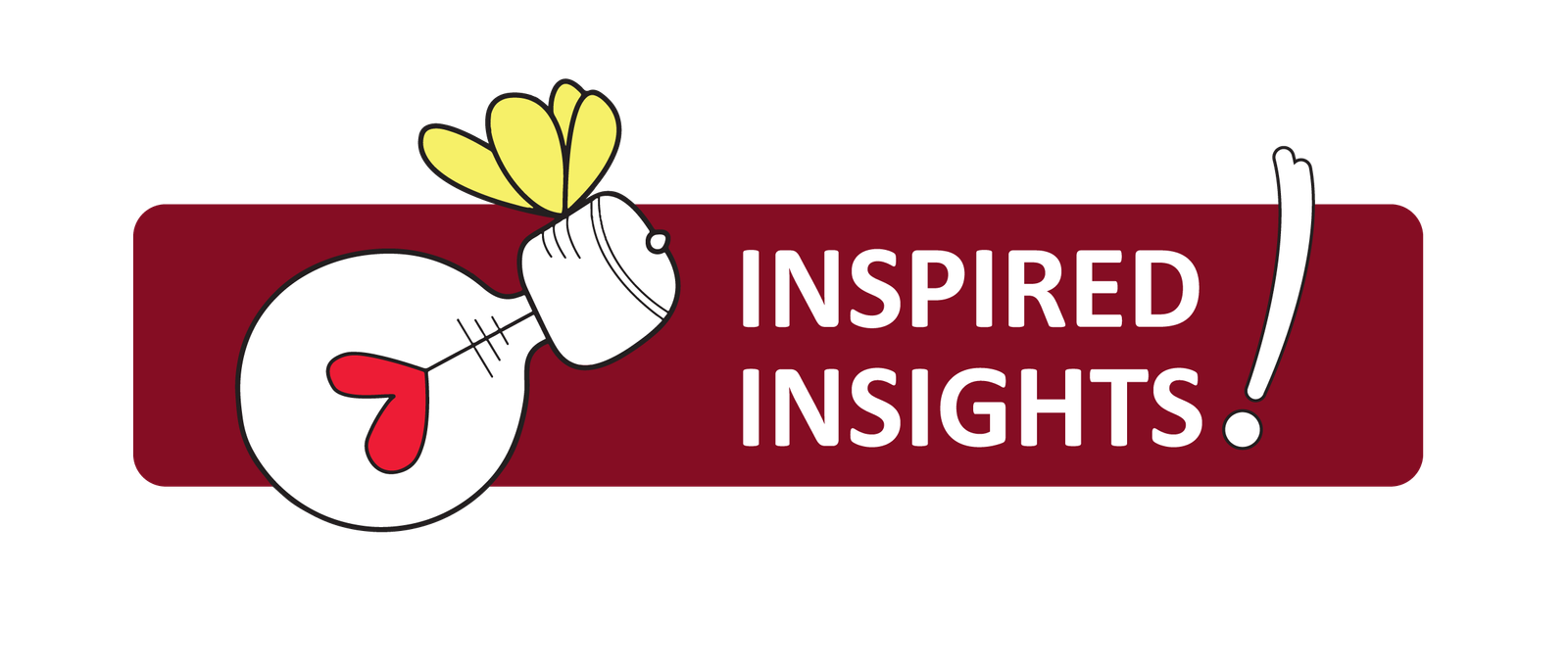
All Episodes
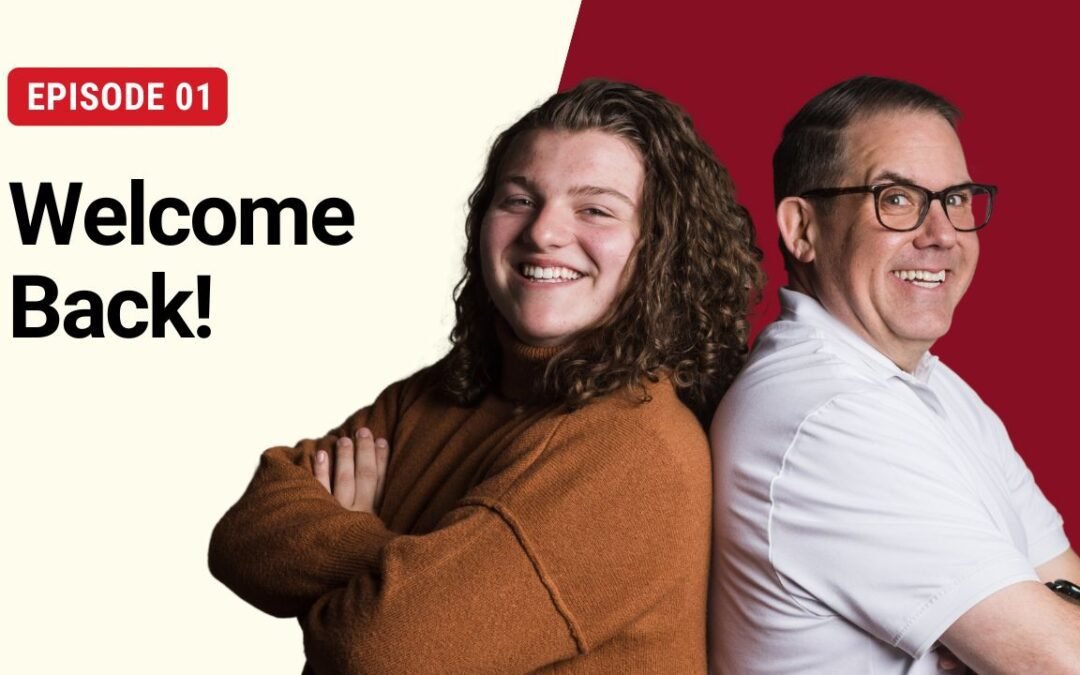
S3E1: Welcome Back
Welcome back to the Inspired Insights Podcast for the very first episode of Season Three! Join hosts Chris and Soren as they dive into a heartfelt conversation about the evolving world around us–and within us.
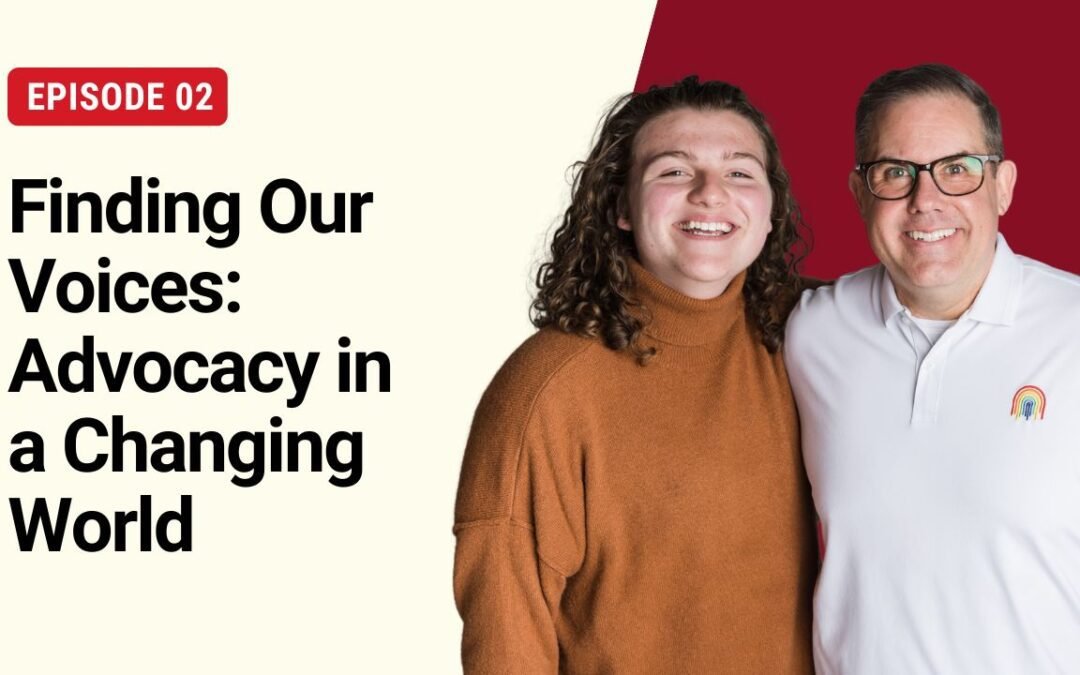
S3E2: Finding Our Voices: Advocacy in a Changing World
Chris and Soren sit down with seasoned lobbyist and tireless human rights advocate, Charlotte Warren, to explore the power—and the personal cost—of advocacy in today’s shifting political landscape.
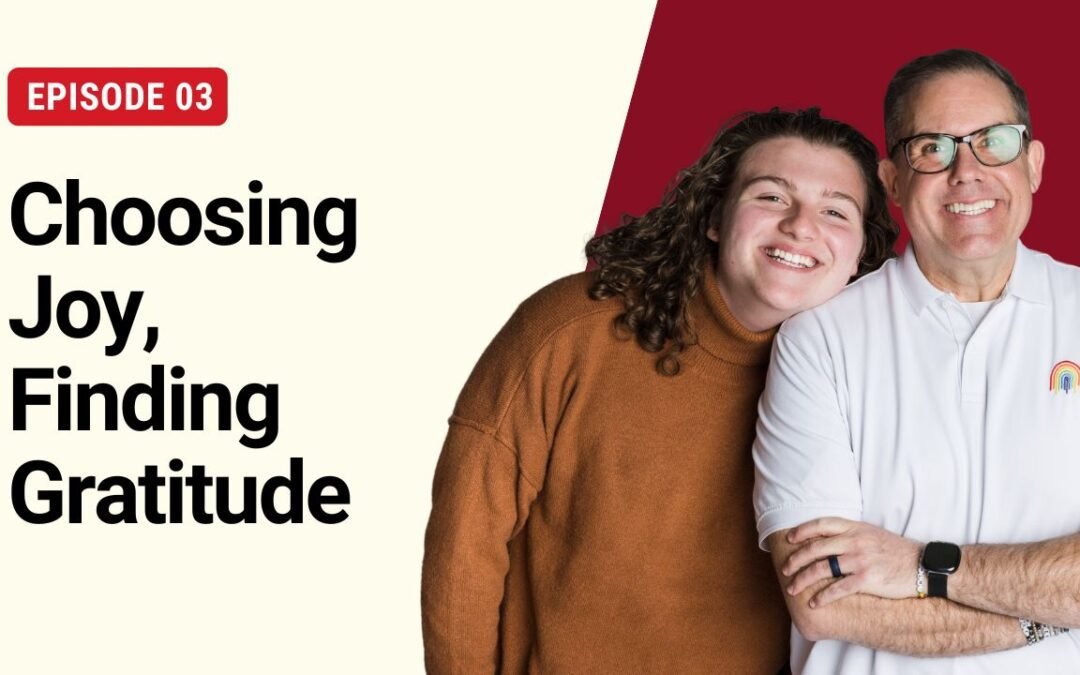
S3E3: Choosing Joy, Finding Gratitude
Chris and Soren unpack how reframing our thoughts can change the way we experience the world—from the inside out.

S3E4: The Power of Storytelling
Chris and Soren sit down with Authenticity Coach and Author Suzanne Carver to explore how sharing your story—and embracing who you truly are—can open doors to healing and transformation.
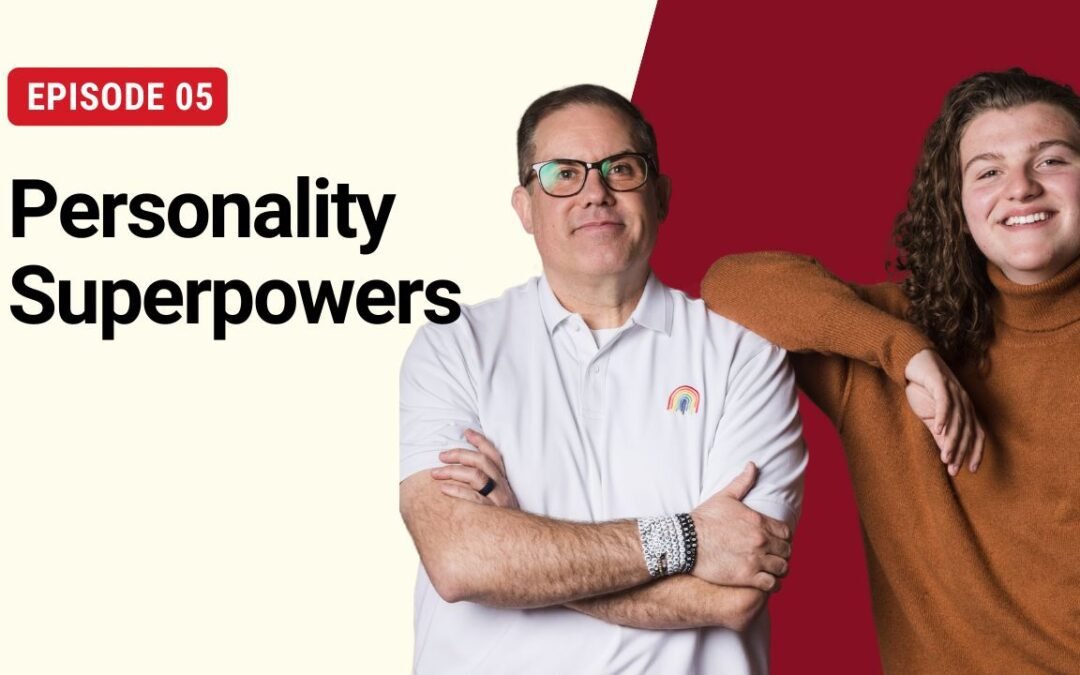
S3E5: Personality Superpowers
In this episode, Soren and Chris explore their Myers-Briggs personality types and how trauma and lived experience have influenced how they show up in the world.
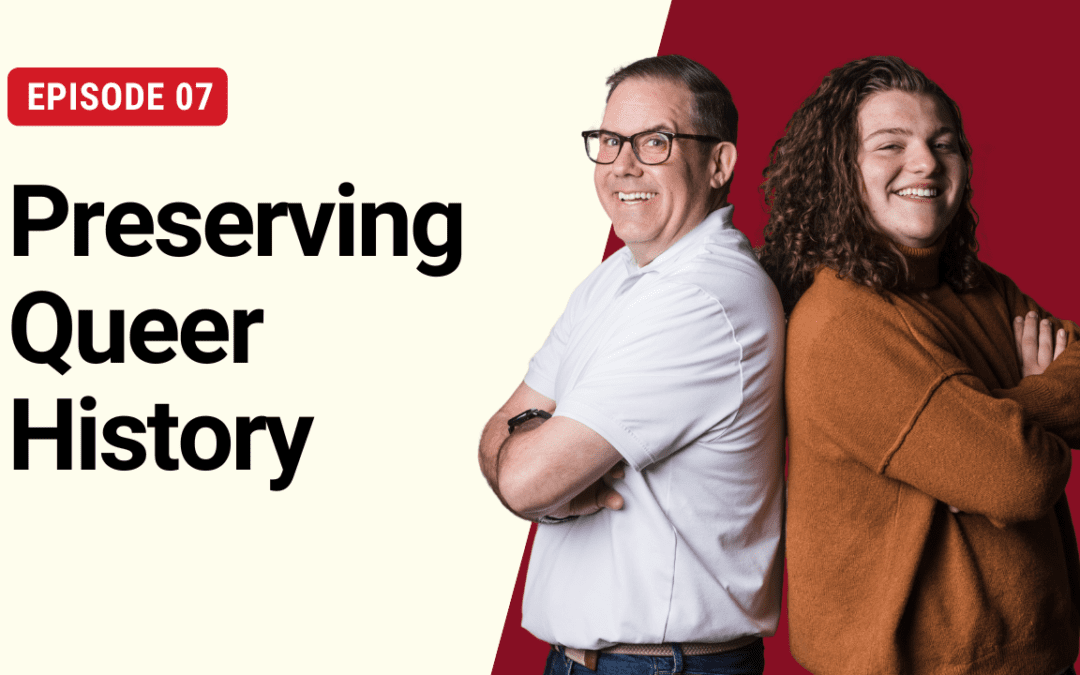
S3E7: Preserving Queer History
Soren and Chris sit down with special guests Sam and Emma to explore the vital importance of preserving queer history through storytelling and community memory.
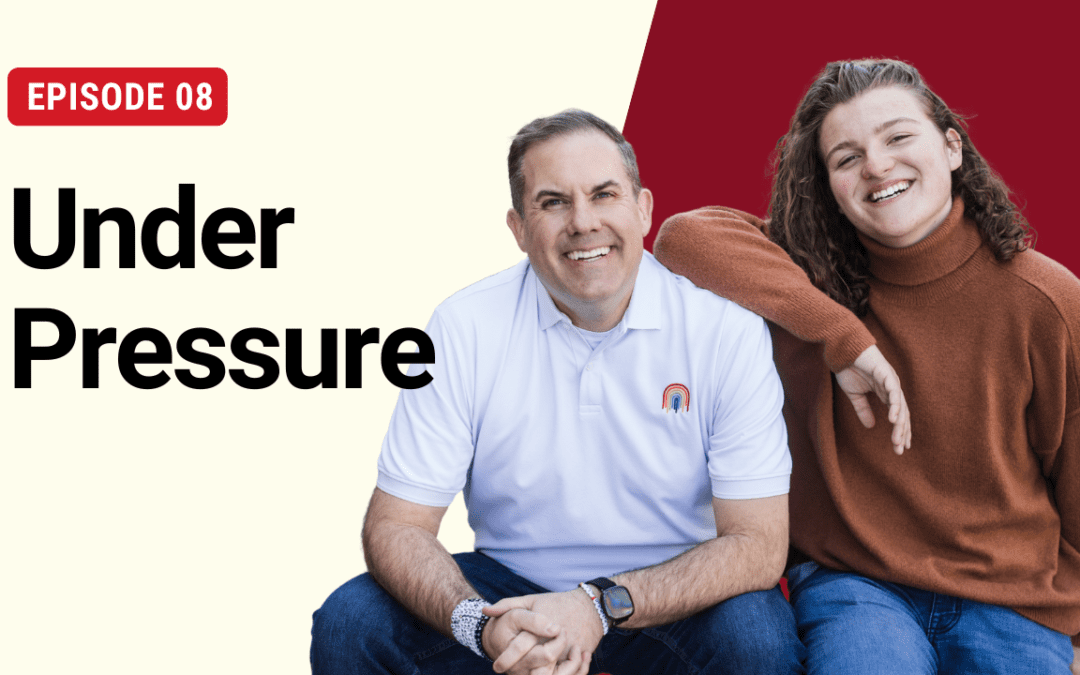
S3E8: Under Pressure
What happens when we let teens speak for themselves? In this candid and eye-opening episode, Soren and Chris hand the mic to two remarkable young adults—Sophie and Bennet
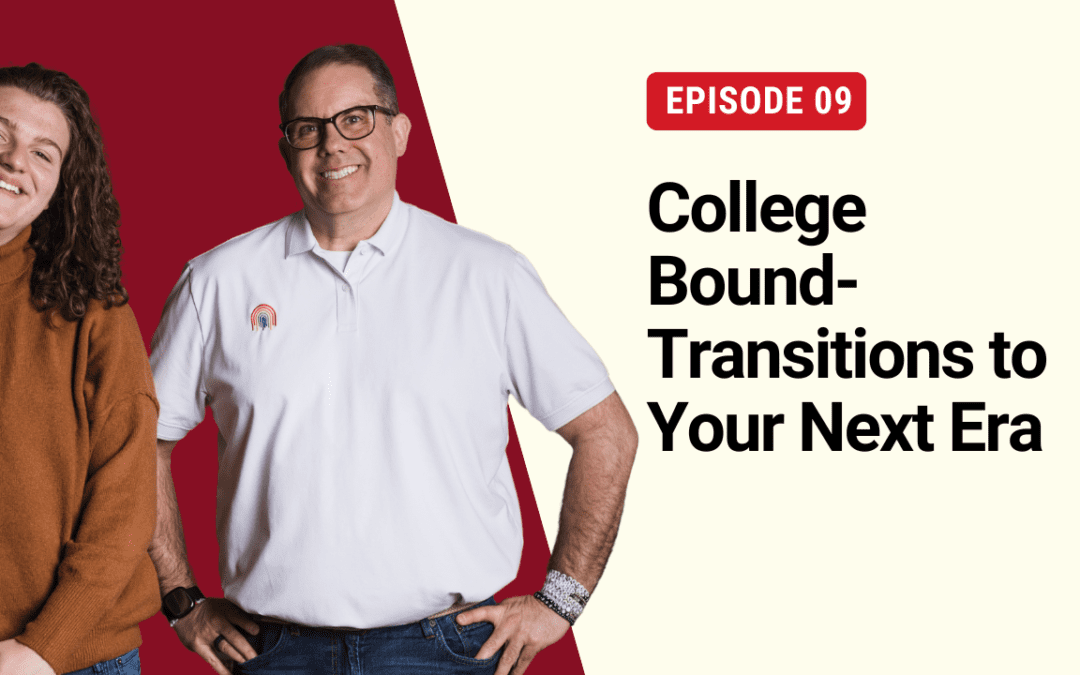
S3E9: College Bound: Transitions to Your Next Era
Soren and Chris sit down with two student life experts, Angela and Andi, to explore the powerful transition from high school to college—and how it reshapes community, mental health, identity, and daily life.
